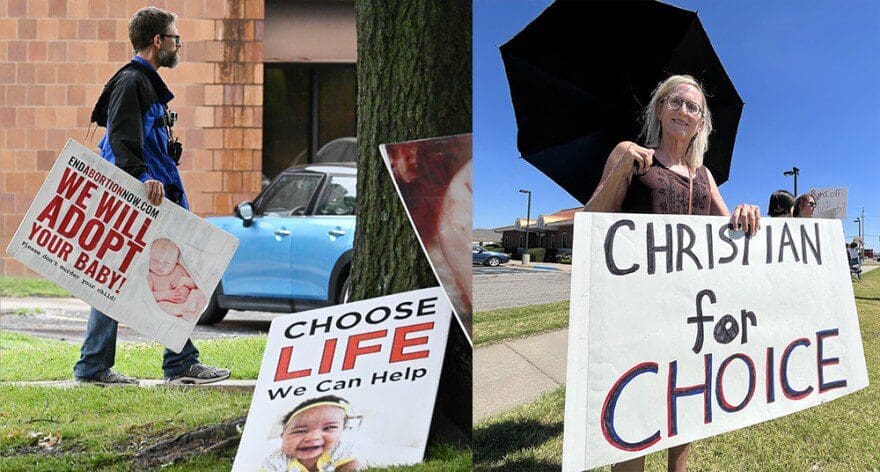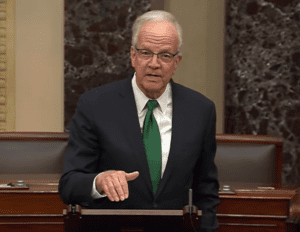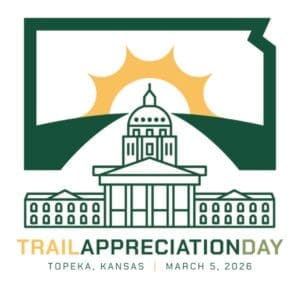Kansas- In the early 1990s, anti-abortion activists from around the country flocked to Kansas and made it the epicenter of protests over what may have been the country’s most contentious social issue.
In the years that followed, the state imposed ever stricter regulations on abortion. Places like Missouri, Oklahoma and Texas went even further.
So when the Kansas Supreme Court ruled in 2019 that the state Constitution included a woman’s right to an abortion, Kansas became a refuge. Today abortions for out-of-staters now outnumber those performed on women from the state.
Those days could be numbered. A ban could be coming.
On Aug. 2, voters will decide whether to amend the Kansas Constitution — effectively overruling the state’s high court and stripping out the right to abortion.
With the U.S. Supreme Court’s decision to overturn Roe v. Wade last month, the country is again looking to Kansas and its first-in-the-nation vote on abortion. Passage of the amendment would open the door for tighter restrictions, and the very real possibility of the Republican-dominated Legislature imposing an outright ban.
“People are really energized right now,” said ACLU of Kansas legal director Sharon Brett, a volunteer for the Kansans for Constitutional Freedom group working to keep abortion legal in Kansas. “They’re mad. They’re angry and they want to fight.”
After the U.S. Supreme Court ruling, neighboring states Missouri and Oklahoma immediately banned abortion. Missouri’s law has no exemption for rape or incest.
The Value Them Both Coalition pushing to pass the amendment has argued that a change in the state constitution merely gives officials elected by Kansans the power to regulate abortion in line with the beliefs of people in the state. Supporters of the amendment have been coy about saying whether they’d push for an abortion ban.
Yet it’s becoming clearer that a ban would almost certainly follow.
A regional director of the Value Them Both Coalition told Reno County Republicans last month that the organization has legislation ready to ban abortion in Kansas if the amendment passes, according to a report from the Kansas Reflector.
A state senator also told the crowd he wanted to pass laws “with my goal of life starting at conception.”
Kansas University Law Professor Stephen McAllister, who was a clerk for Supreme Court Justice Clarence Thomas and the U.S. Attorney for Kansas under President Trump, said it comes down to political control of the state.
“This is about basically, given the Republican Party’s control of the Legislature, the ability to ban abortion,” McAllister says. “That’s the bottom line. Next session, if this amendment passes, there will be bills to ban abortion right out of the gate.”
Even if Democratic Gov. Laura Kelly wins reelection in November, conservatives in the Legislature would likely have the numbers to override a veto of an abortion ban.
So the state would quickly shift from being an abortion destination to a place where the procedure is outlawed.
Kansas already bans abortions after 22 weeks, imposes a waiting period and requires that abortion medication be provided in person, among many other restrictions.
Jessie Hogan, who, like Brett, was volunteering recently for Kansans for Constitutional Freedom, said seeing Roe fall jolted her into action on the state amendment.
“It just dawned on me that this is an issue that each person is going to have to stand up for,” Hogan said.
But University of Kansas political science professor Patrick Miller said abortion rights advocates are playing catchup.
“Amendment opponents were behind the ball on this. The public campaign of abortion rights supporters, of the opponents of the amendment, was pathetic to non-existent,” Miller said.
By contrast, abortion opponents have been gearing up for this fight for years.
At a roundtable convened recently by the Value Them Both Coalition, Republican State Rep. Susan Humphries said the event aimed to combat misinformation about the amendment.
“I’m trying to make it clear that we are not banning abortion,” Humphries said. “That’s not what we’re talking about. And so we’ve got to fight that misinformation.”
Matt Schlapp, chairman of the Conservative Political Action Coalition, or CPAC, argued at the roundtable that the amendment is needed to maintain state restrictions on abortion.
“The thing that’s important about these laws that were stripped off the books by the (Kansas) Supreme Court and a very elite decision and dishonest decision to say that the right to abortion is enshrined in the Kansas Constitution, it’s simply not enshrined in the Kansas Constitution,” he said. “They didn’t have the right to take all those laws off the books.”
That 2019 ruling struck down some actions by the Legislature, but a host of restrictions — including the waiting period and a ban after 22 weeks — remain.
And then there’s the ballot language. The first sentence of the proposed amendment suggests that approving it will prohibit state funding of abortion.
“That’s just a red herring that would be up to the Legislature,” McAllister said. “Our Legislature is not going to publicly fund abortions. (The ballot language is) purposely misleading.”
The wording of the amendment, and the messaging around it, aren’t the only factors aimed at securing passage of the amendment. The timing of the election was also designed to favor passage.
“The state Legislature, of course, put this on the ballot in August on purpose, so fewer people would vote,” says Gina Spade, who opposes the amendment and was ringing doorbells with her daughter in their suburban-style subdivision on the outskirts of Lawrence.
Turnout for Republican primaries typically outpaces that for Democratic primaries. But even voters who aren’t affiliated with a political party can cast ballots. in the Aug. 2 election. Conventional wisdom suggests the amendment will pass, but a survey of Kansans suggests most still support some form of abortion rights.













